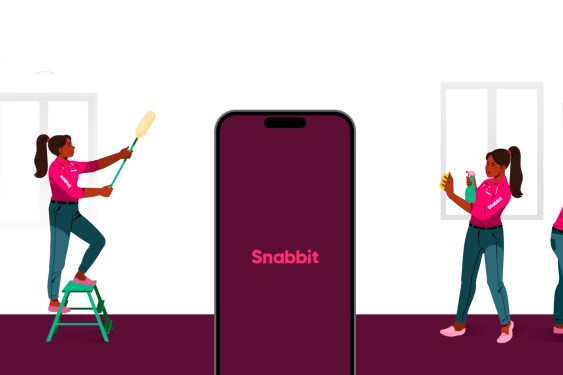India’s growing demand for instant convenience, which was once focused on food and grocery delivery, is now expanding into household help. This trend has supported Snabbit, an on-demand home services startup, in securing thirty million dollars in new funding. This investment has increased the company’s valuation to one hundred eighty million dollars, a significant rise from its eighty million dollar valuation just five months ago.
This all-equity Series C round marks the startup’s third fundraising effort in nine months. It was led by Bertelsmann India Investments, with additional participation from existing investors Lightspeed, Elevation Capital, and Nexus Venture Partners. The latest funding brings Snabbit’s total raised capital to fifty-five million dollars.
This new funding follows a period of rapid growth for the Bengaluru-based company. Snabbit has expanded from handling about one thousand jobs per day in May to now managing more than ten thousand daily bookings. The company reported crossing a total of three hundred thousand orders in October.
Founded in 2024, Snabbit provides a variety of on-demand home services for urban households. These services include cleaning, dishwashing, laundry, and kitchen preparation. The company operates through a one hundred percent women-led fleet of five thousand trained experts. These workers are stationed within a hyperlocal network located near dense residential areas, allowing the company to promise service within ten minutes.
Snabbit currently serves forty micro markets across five major Indian cities: Mumbai, Bengaluru, Gurugram, Noida, and Pune. The company plans to deepen its presence in these cities and soon expand into Hyderabad, Chennai, Delhi, and Calcutta.
The startup has served over three hundred thousand customers, a substantial increase from the twenty-five thousand customers it had in May. It expects to add another one hundred thousand customers as early as next month. Most of its users are between thirty and forty years old and include both bachelors and working professionals.
Some of Snabbit’s customers are people who do not want full-time domestic help and prefer an ad hoc solution. The company focuses on addressing inefficiencies in the existing model rather than simply moving an offline service online.
Snabbit reports a customer retention rate of thirty to thirty-five percent and projects it will reach an annual recurring revenue of eleven million dollars this month. The company also maintains a customer acquisition cost well below five hundred Indian rupees, or approximately six US dollars.
The services are priced at around one hundred fifty Indian rupees, or about two US dollars, per hour. The average ticket size for a service order is around two hundred forty rupees, or roughly three US dollars.
Workers on the platform typically earn between twenty-five thousand and thirty thousand Indian rupees per month, which is approximately two hundred eighty-four to three hundred forty US dollars, depending on the hours they work. The company has also optimized operations by reducing the average walking distance for its workers between jobs from three hundred meters to two hundred fifty meters, giving them more time to serve customers.
Snabbit is not the only company competing in India’s fast-growing on-demand home services market. Urban Company pioneered this trend, and other startups like Broomees and Pronto have also entered the space. Urban Company now plans to intensify its focus on instant home services to maintain its lead against rising competition. However, Snabbit says it does not see this as a major challenge.
The company believes that in a hyperlocal business, success is achieved by winning individual micro markets rather than entire cities or the whole country. Snabbit states that in the micro markets where both it and Urban Company are present, it is leading in more areas because it has focused on building depth of service instead of just breadth.
The new funding will be used to strengthen Snabbit’s current market presence and expand its offerings into high-frequency service categories such as cooking, child care, and elderly care.

